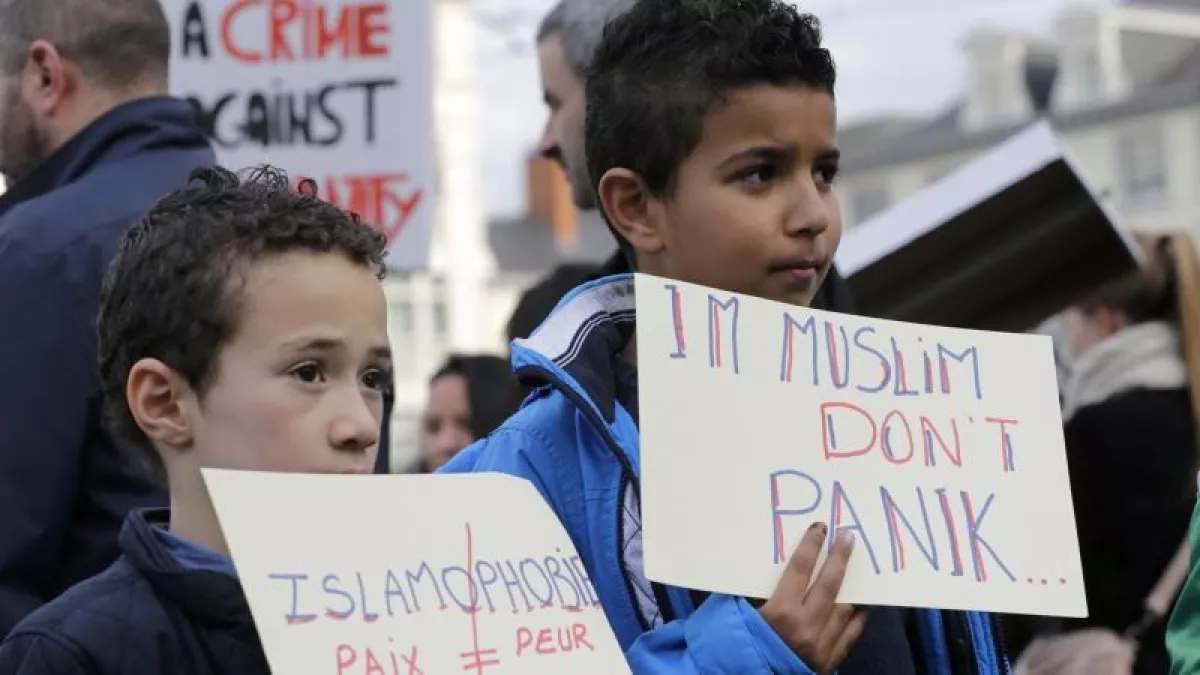“Liberty, equality… repression”: The hidden toll of France’s war on its Muslims Opinion by Rayan Freschi
France’s long-standing motto — “Liberty, Equality, Fraternity” — is increasingly being called into question as thousands of Muslim families leave the country, citing what they describe as a hostile and discriminatory environment. A recent opinion piece by Paris-based researcher Rayan Freschi, published by the British news outlet 5Pillars, argues that official policies and social attitudes in France have created an atmosphere so toxic that many Muslims now see emigration as their only option.
Freschi, who investigates anti-Muslim persecution for the advocacy group CAGE, points to a trend that, according to researchers, has already seen at least 10,000 Muslim families — potentially 30,000 to 40,000 individuals — leave France in recent years. Their decision, he writes, reflects not only disillusionment with systemic inequality but also deep concern about their children’s future in a society that increasingly treats visible Muslim identity as incompatible with French values.
Restrictive legislation and institutional pressure
According to Freschi, the roots of this exodus lie in a dense network of laws and policies that limit religious and cultural expression.
Since 2004, France has banned the hijab in public schools, forcing Muslim girls to choose between their education and their faith. The niqab has been outlawed in all public spaces, effectively criminalising a personal religious choice. These measures, justified under the principle of laïcité — France’s strict interpretation of secularism — are presented as necessary to safeguard social cohesion. Yet, in practice, they have disproportionately targeted Muslims, sending a message that their presence and beliefs are at odds with national identity.
Beyond clothing restrictions, Freschi highlights a policy of what he calls “systematic obstruction” aimed at dismantling Muslim civil society. Since February 2018, at least 1,000 Muslim organisations, including mosques and small businesses such as restaurants, have been closed by authorities. A further 30,000 entities have faced raids, administrative audits, or other forms of harassment.
The economic consequences have been severe: approximately €55 million in Muslim community assets have been seized over this period. The closures, Freschi argues, are not isolated actions but part of a broader campaign that undermines Muslim economic and cultural participation in French public life.

Impact on education and family life
The effects of these policies extend into the education system, where Muslim parents find their options increasingly limited.
The effective ban on homeschooling, which many Muslim families had relied on to provide instruction aligned with their values, has removed an essential alternative. Meanwhile, France’s private Islamic schools — roughly 90 nationwide — operate under constant scrutiny and risk closure at any time.
In public schools, strict secular rules go further: not only are headscarves prohibited, but even prayer is banned. Teachers have reportedly alerted social services or police when students are found praying during breaks, incidents that, Freschi notes, send an unmistakable message — that Muslim identity has no place in the French classroom.
This exclusion, he says, drives many families to emigrate in search of an environment where their children can grow up free from pressure to abandon their religious identity.
“Hijra”: A modern exodus
Researchers describe this wave of departures as a kind of “Hijra” — a modern migration motivated not only by economic necessity but also by the desire for religious and cultural security.
While discrimination in hiring practices remains widespread — with applicants wearing hijabs or bearing Muslim-sounding names facing clear disadvantages — many families cite broader reasons for leaving. The main concern, Freschi writes, is ensuring that their children can live “without fear of persecution or forced assimilation.”
Government rhetoric has only intensified these fears. Former President Emmanuel Macron’s campaign against what he called “separatism” framed such policies as counter-terrorism measures. Yet, Freschi argues, the sweeping targeting of Muslim organisations and individuals — including criminal prosecutions for activists using words like “intifada” at pro-Palestinian demonstrations — suggests a far wider goal: the erasure of Muslim civic identity.
Repression and resilience
Freschi characterises the closure of organisations, seizure of property, and prosecution of activists as forms of state-sanctioned persecution that silence Muslim voices and restrict their ability to engage in public life.
Despite these pressures, he notes, a growing number of Muslims in France have refused to retreat. Since 2021, new advocacy groups and activists have emerged, asserting their right to exist and to speak openly.
Even amid police raids, administrative harassment, and restrictions during events such as the Paris Olympics, these voices continue to demand equality and accountability. Their persistence, Freschi suggests, demonstrates that the struggle for Muslim rights in France is not merely about survival — it is about reclaiming dignity and agency in a nation that seeks to marginalise them.
A warning beyond France
Freschi concludes that the situation in France should serve as a warning to other Western democracies. Policies targeting Muslims under the guise of secularism or national security, he argues, could easily expand to justify restrictions on other minorities.
In this context, solidarity — both within and beyond France — becomes essential. Inside the country, civic engagement and grassroots activism remain key to preserving space for dissent and representation. Outside it, international awareness and support are vital.
Freschi calls on global audiences to stay informed, follow the work of grassroots organisations, and recognise that France’s treatment of its Muslim citizens may foreshadow broader democratic decline.
“The world is watching,” he writes, “and the lessons from France will echo far beyond its borders.”
By Tamilla Hasanova








